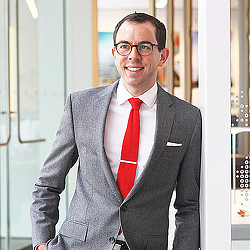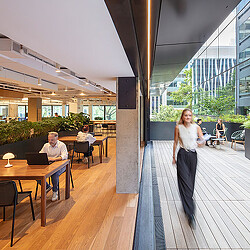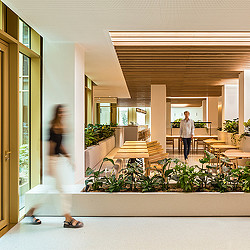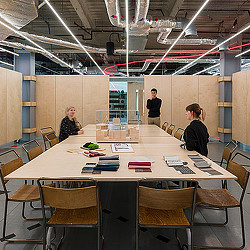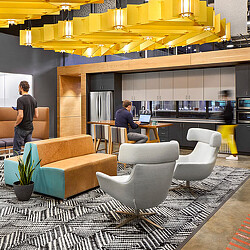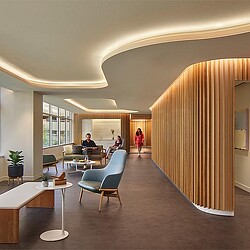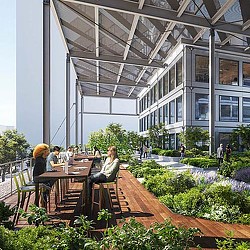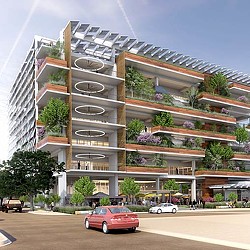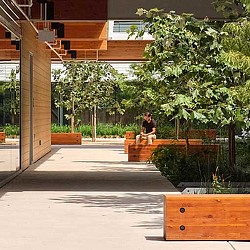Gensler’s D.C. Office Expansion, Renovation, and a Groundbreaking New Way to Break Down Broadloom Carpet
An office expansion pushes ideals around material reuse in a circular economy, sustainability, and workplace design.
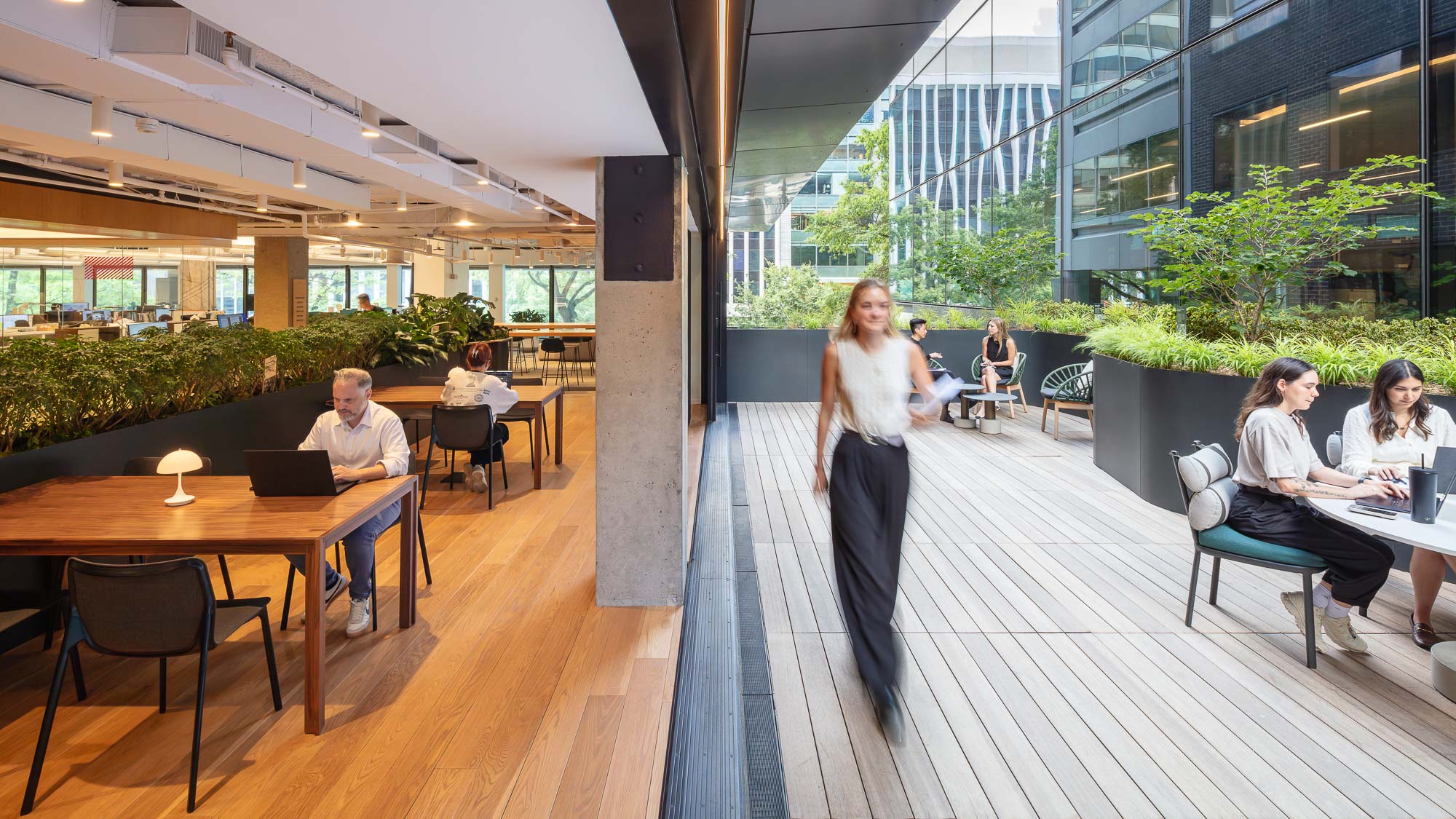
For 27 years, Gensler has called 2020 K Street NW in Washington, D.C. home. During this time, our office has undergone several evolutions, expanding and renovating to continue enhancing the workplace experience. Our latest renovation, pursuing a long-dreamt-expansion by building out a private terrace that opens the office’s second floor to the outdoors, pushes our own goals and ideals around material reuse in a circular economy, sustainability, and workplace design.
We began the process by conducting detailed studies to accommodate efficient seating layouts, biophilic elements, and more to create the most comfortable and efficient work and social space possible. In a matter of months, we delivered a one-of-a-kind space just in time for the summer season.
The resulting 6,133-square-foot renovation provides a new outdoor environment for employees to relax, recharge, and connect with nature just steps from their desks, as well as a revamped indoor space with more communal seating for collaboration. Lush, live plants immerse the terrace in greenery, while expansive windows and additional biophilic design elements indoors create a seamless connection between employees and nature. The winner of NAIOP DC/MD’s 2024 Best Sustainable Project Award, the terrace sets a standard for the region and beyond for what real environmental impact looks like.
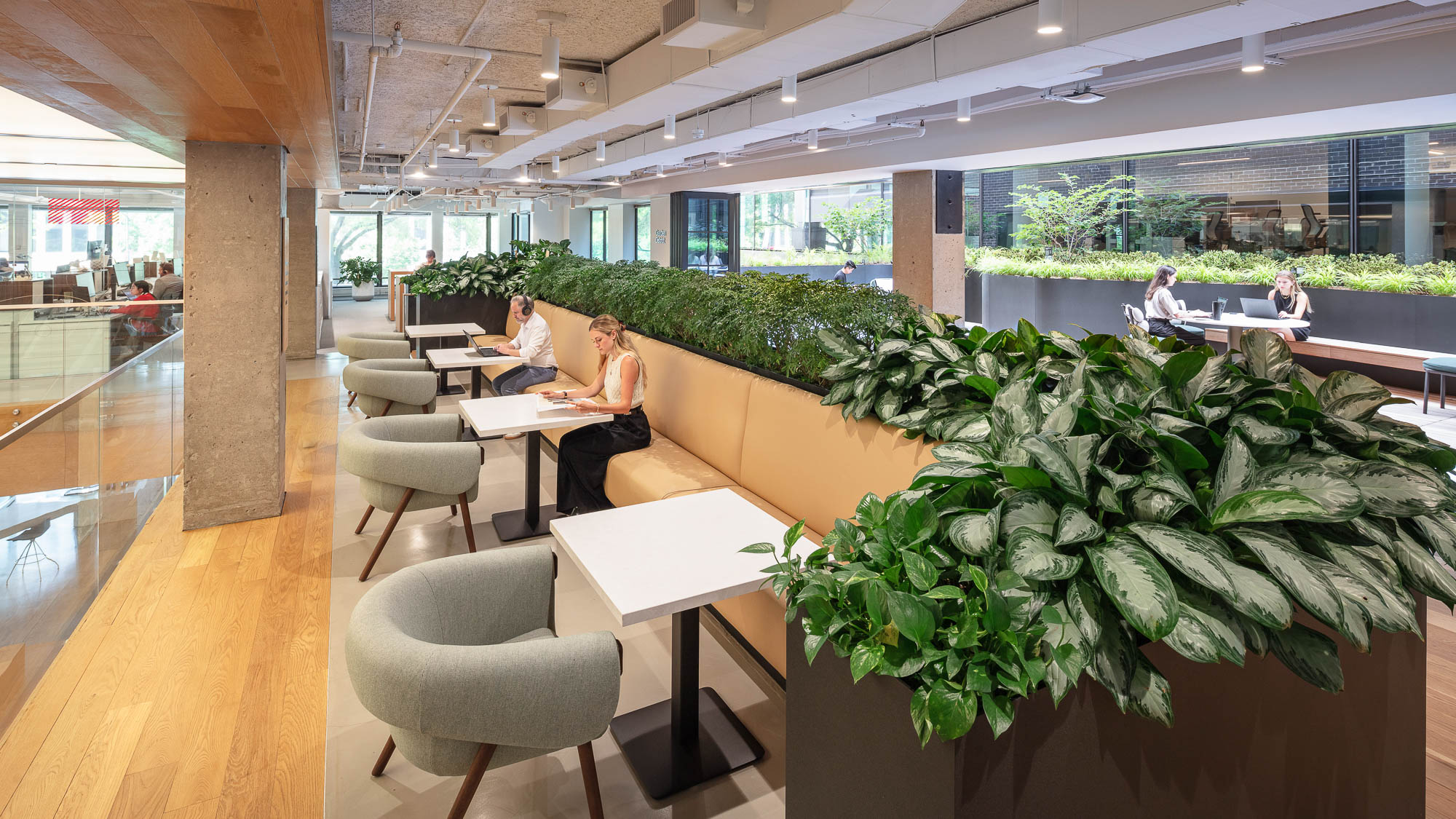
Maintaining Our Sustainability Standards
The finished terrace also reflects our strong commitment to sustainability. From the start, the entire project team (consultants included) committed to Gensler’s Cities Climate Challenge for the project — with our goal of reducing the impact our project had on the environment.
For this specific project, we identified indoor environmental air quality, operational carbon, and embodied carbon as our key sustainability focuses to ensure this project enhanced both employee experience and reduced our impact on the environment through conscious decision making and material selection.
Indoor Environmental Quality
The air quality of the space comes down to the materials we specify. At Gensler, we conduct stringent emissions evaluations to understand the amount of volatile organic compounds that are present in a material. We carefully selected products that met industry standards to ensure our materials were not producing a level of off-gases that are harmful to the air we breathe. Additionally, the installation of floor-to-ceiling glass windows and doors also increased access to daylight and views of nature, improving the well-being of employees indoors.
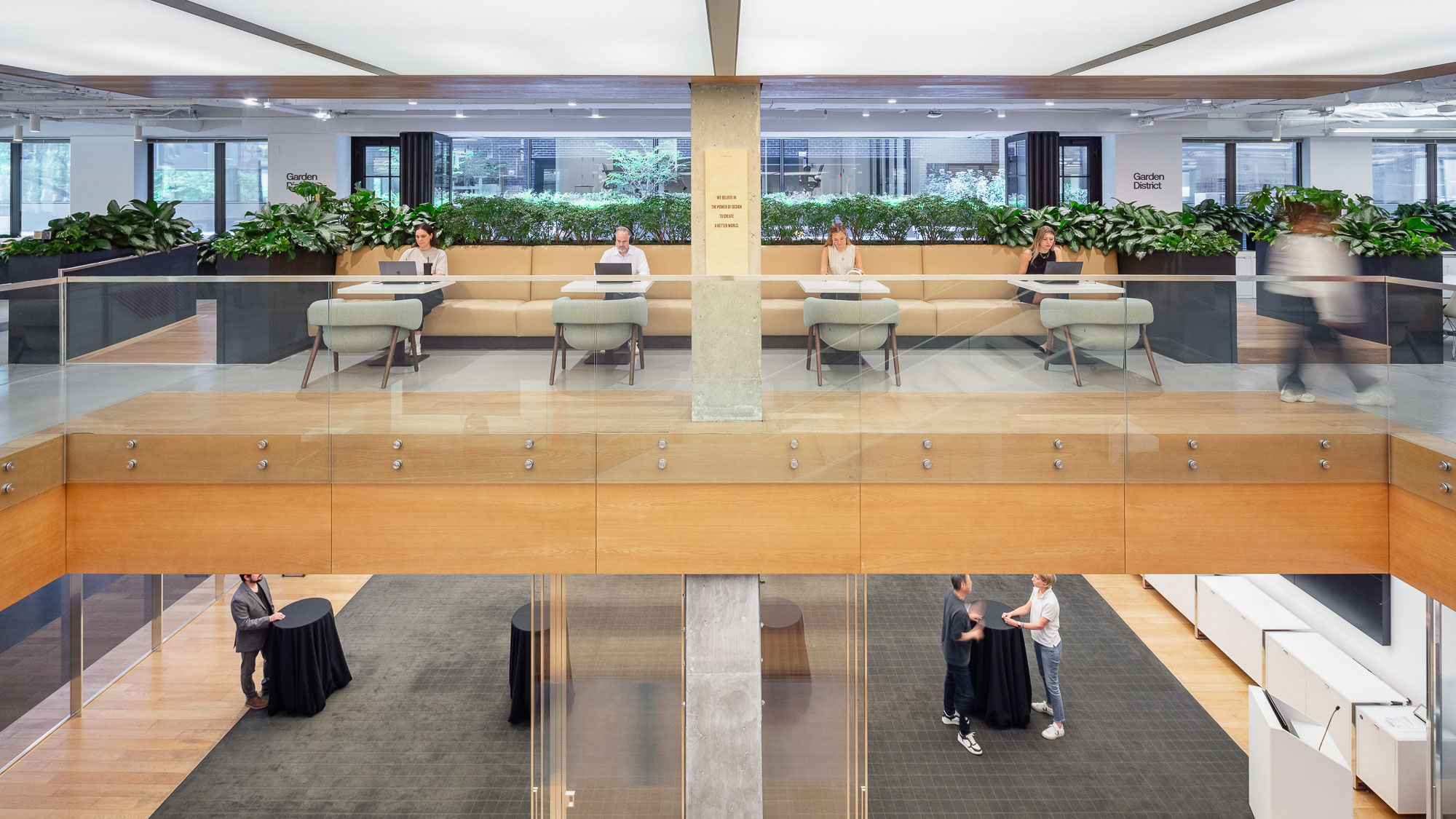
Operational Carbon
The AIA 2030 Challenge sets a target for 50% reduction in lighting power density by 2030. Fortunately, technological advances in lighting — mainly the rapid adoption of light-emitting diodes (LED’s) — have allowed many of our client’s projects, as well as this project, to meet and surpass the 2030 target of 50% reduction. For the terrace, we surpassed AIA’s standards, with a 67% reduction in interior lighting and 60% reduction in combined indoor/outdoor lighting.
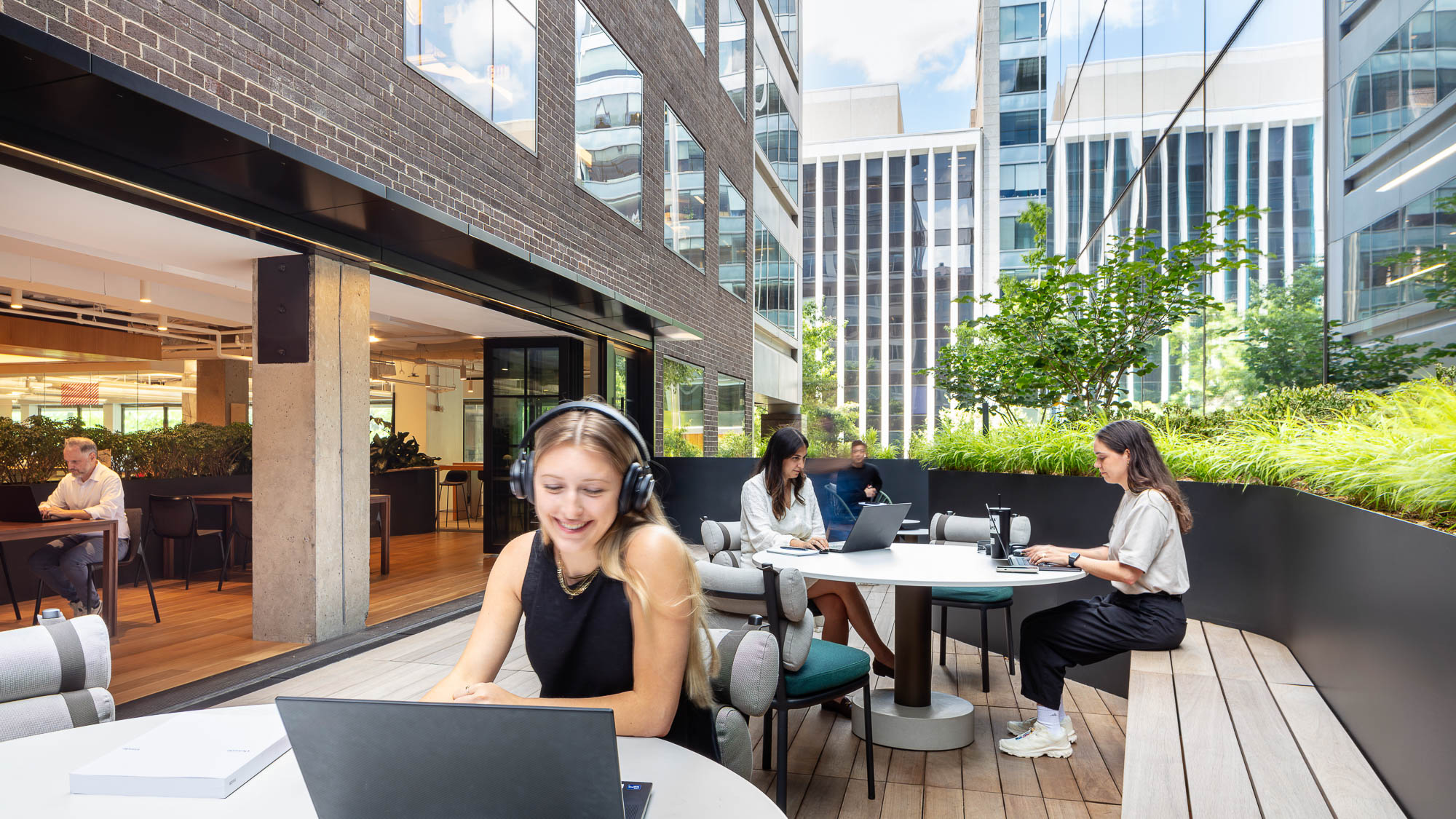
Embodied Carbon
To successfully meet our target of diverting at least 90% of the construction and demolition waste from landfills, we collaborated with all stakeholders to have a deconstruction and reuse plan for materials — old and new. We relocated the furniture and electronics that could be reused within the office or donated them to organizations in need, such as Kelly Miller Middle School in Washington, D.C. Avoiding the use of virgin tropical wood, we selected the high-performing Angelique species of water-harvested wood for the terrace’s flooring. The wood was harvested from flooded valleys in Panama, recycling perfectly preserved materials that would otherwise go to waste.
Additionally, the project team embraced the circular economy through material reuse — using existing materials and products in our space. From roof ballast and brick on the exterior to salvaged wood and repurposed furniture on the interiors, the project is proof positive that a circular design with reused materials can meet the needs of our projects today.
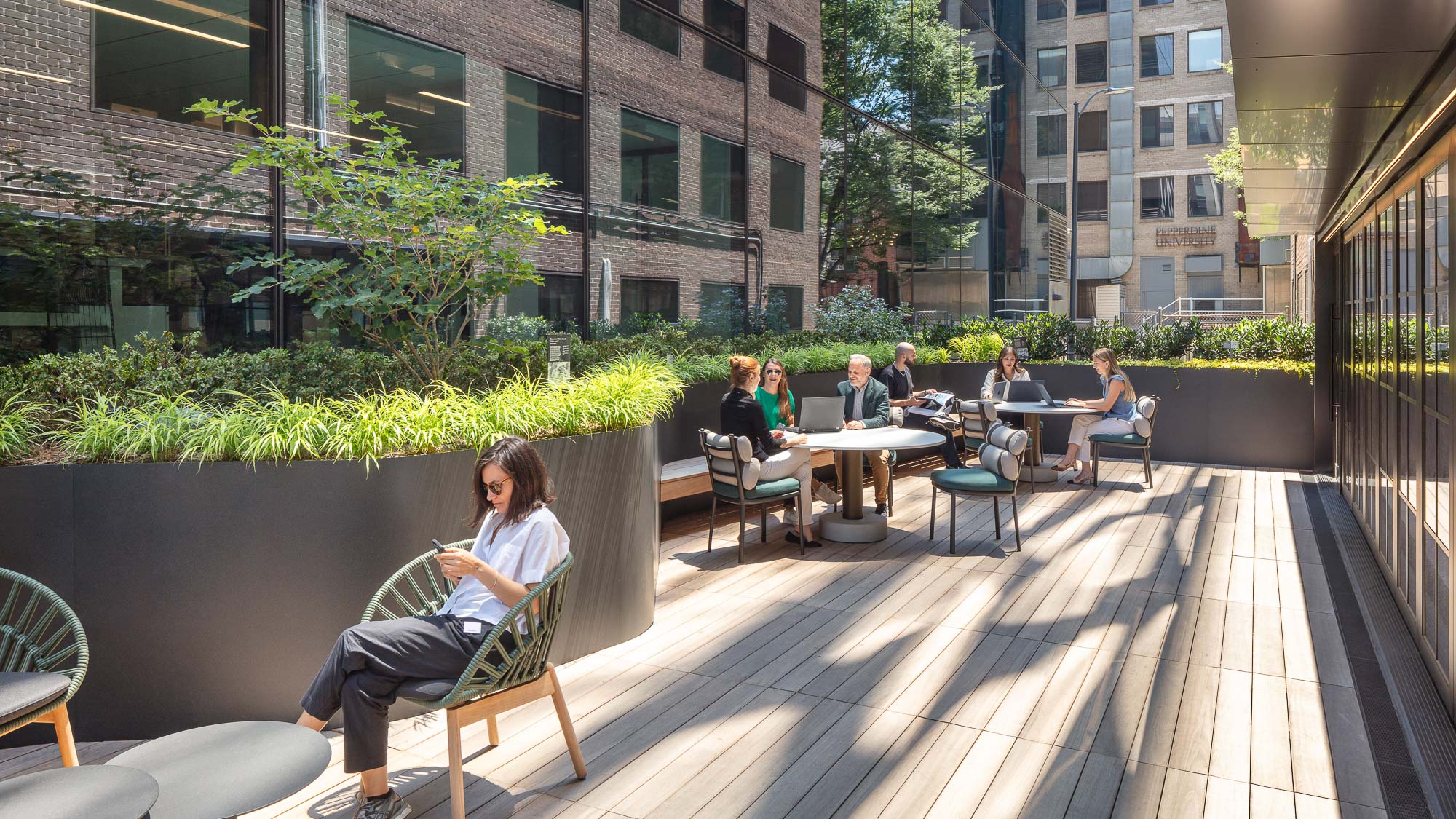
Discovering creative solutions with endless opportunity
Our greatest challenge during the entire renovation was discovering a way to divert our uninstalled broadloom carpet from the landfill. The historically unrecyclable material accounted for a significant amount of waste and created a roadblock in meeting our diversion targets.
Our solution was to collaborate with DPR Construction, carpet manufacturer Tarkett, and biotech company Mycocycle to harness the power of mushroom root systems (or mycelia) to naturally break down the waste and avoid the landfill. The mushrooms then produce a natural byproduct that has all the qualities of an ideal raw material for the built environment and reduces the industry’s reliance on virgin raw materials. To discover a natural way to recycle a challenging but commonly found material such as broadloom was a trailblazing effort, which has the power to change the way the industry thinks about construction waste forever.
Applying Key Learnings on a Broader Scale
By applying these key learnings to our client and external project work around the greater D.C. region and beyond, we can continue setting a new caliber for what a truly beautiful and sustainable space can be. Specifically, the strategies exemplified in reducing the project’s carbon footprint and the groundbreaking recycling discoveries will create a lasting impact on the surrounding environment and revolutionize the way the industry approaches diversion.
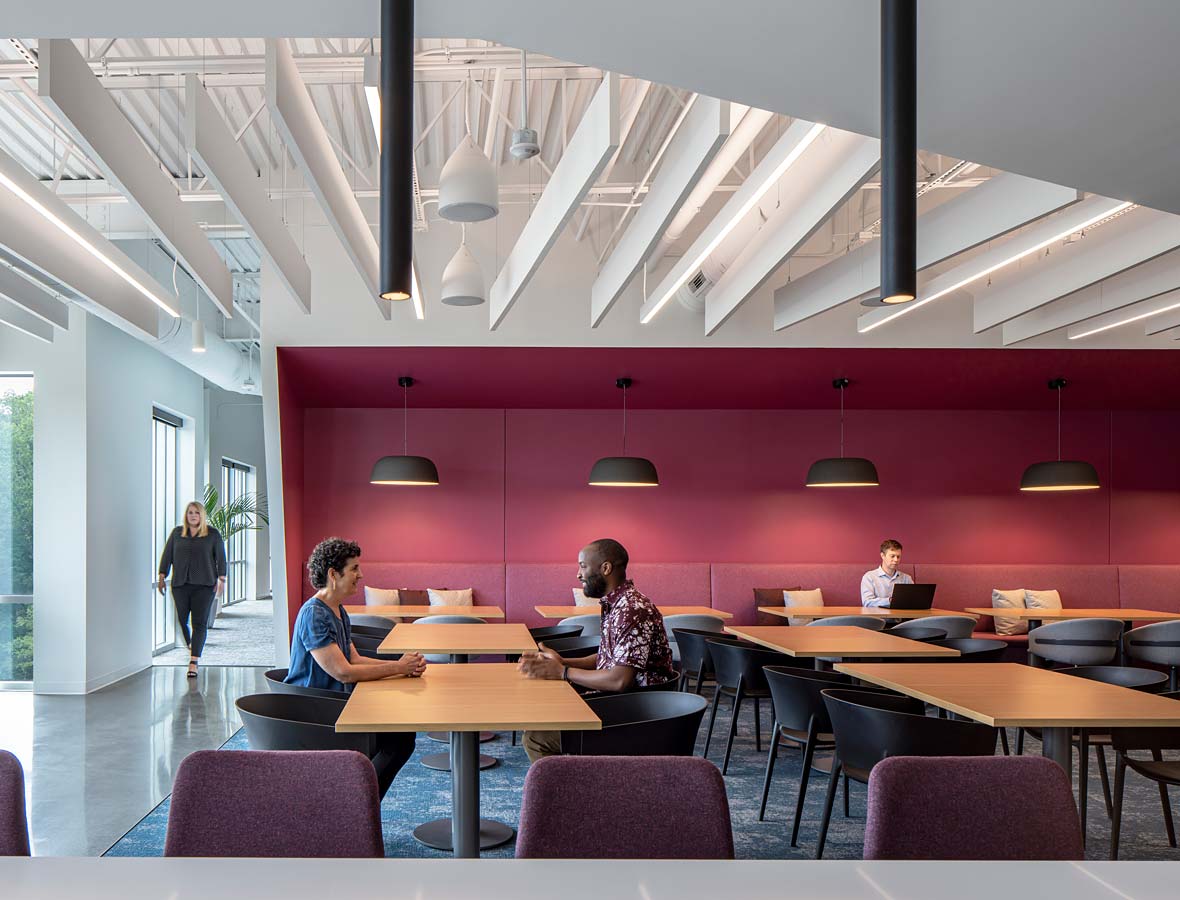
For media inquiries, email .
